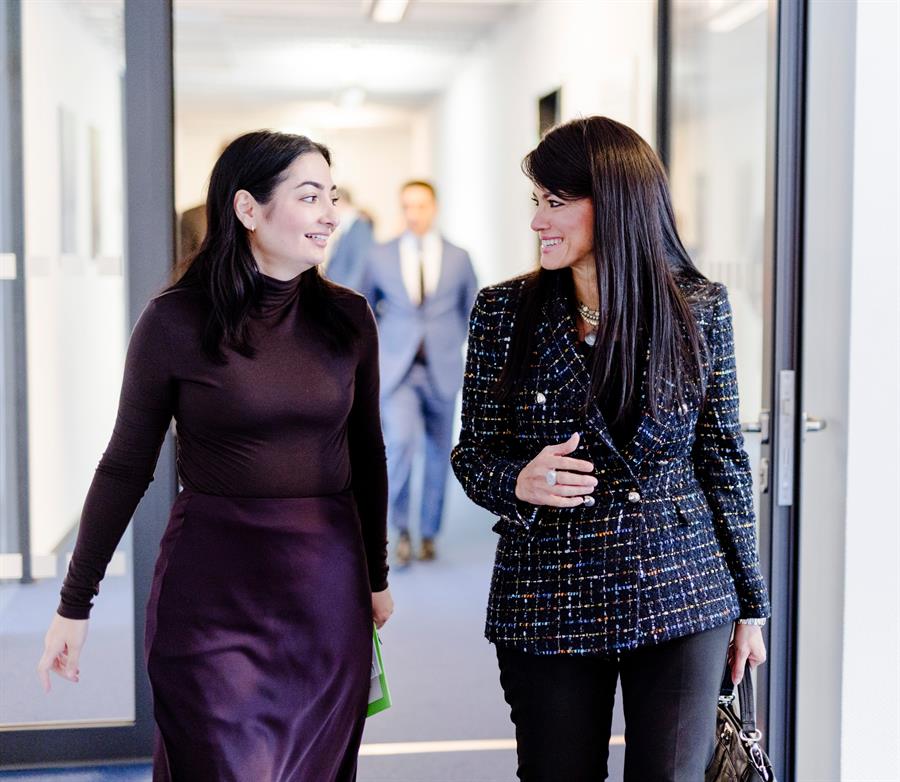At the end of its Annual Meetings in Sharm El-Sheikh: Egypt, IsDB Sign 13 Agreements, MoUs

04 June 2022
H.E. Dr. Hala El-Said, Minister of Planning and Economic Development, Governor of the Arab Republic of Egypt, and Chairperson of the Board of Governors of the IsDB Group thanked His Excellency Dr. Mohamed Suleiman Al-Jasser, and Mr. Ayman Sejni, the CEO of the Islamic Corporation for the Insurance of Investment and Export Credit, Mr. Osama Al-Qaisi, the CEO of the International Islamic Trade Finance Corporation, Eng. Hani Sonbol, the Secretary-General of the IsDB Group, Mr. Ghassan Al-Baba, and all members of the Bank’s team.
She said that Egypt was honored by the presence and valuable contributions of its distinguished guests from all countries of the world, especially the brotherly Arab and African Islamic countries that are members of the Bank Group, with whom there are extended historical relations and with which Egypt shares a common ambition and aspirations for a better future.
She added that Egypt's hosting of the Meetings of the Islamic Development Bank Group this year reflected the nature of the deep-rooted relations and the distinguished strategic
the partnership between the two sides resulted in a growing and diversified cooperation portfolio with the Bank group that exceeded the $17 billion barriers and included the approval of 367 projects for Egypt, and 303 have already been completed.
Including a project with a total cost of more than 10.5 billion US dollars, and 64 projects are underway in the electricity, food security, technical education, vocational rehabilitation, capacity building, and others.
She explained that the Annual Meetings provided a regional forum to review the services provided by the Bank Group and the participating financing institutions, which contributed to maximizing the benefit of member countries from the activities of these institutions, in addition to providing an opportunity to review the positive developments and experiences of different countries, expressing her happiness with the results of the meetings as well as the annual economic returns of the IsDB Group, the accompanying events, and the promising investment opportunities they presented, open up prospects for developing trade routes, attracting investment flows, establishing innovative partnerships, and establishing commercial relationships that allow contributing to regional and global value chains.
The Minister explained that the meetings this year included an unprecedented number of participants from the member countries of the Bank Group, and from all over the world, as well as a distinguished elite of representatives from the Egyptian, Arab, and African private sectors, civil society, and international and regional development institutions.
She added, “the total number of registered participants for this event exceeded 5,000 participants (5030), including a large number of ministers of planning, economy, and finance in the member countries of the Bank Group, with nearly 100 governors and alternate governors in the Bank. Additionally, more than 3,500 participants from Egypt and the world, including around 150 speakers, representatives from 45 international organizations, and 325 local, regional and international media organizations.
She pointed out that the meetings witnessed, for the first time, the holding of a special business forum, which included the largest number of local, regional, and international investment companies and institutions, during which about 15 dialogue sessions were held. They discussed various economic and development issues with the participation of a group of Egyptian, Arab and international speakers. These events coincided with holding 18 exchange sessions of information and experiences covering climate change axes, reviewing best practices to achieve the UN goals for sustainable development, mechanisms for promoting green economy projects, digital transformation in the financial services sector, and implementing governance principles to accelerate recovery and achieve inclusive and sustainable growth. Moreover, they included boards of governors, general assemblies, and IsDB members to discuss developmental and institutional issues.
She added, "13 memorandums of understanding (MOU) and letters of intent between the Egyptian partner agencies, the Islamic Bank, and member institutions in various vital fields were signed during the meetings, in addition to over 50 cooperation documents between the Bank Group and other member states. Among the documents signed with Egypt were two MOUs with the Islamic Corporation to guarantee investment and export credit. The Federation of Egyptian Industries and El Sewedy Electric Company also signed to enhance the potential trade and investment for Egyptian industries and to establish projects that meet the required standards for preserving the environment, climate, and water resources in Egypt and the member states.
Respectively, an MOU was signed between the Islamic Corporation for Development of the Private Sector and some banks and private sector companies, including Tharwa Capital, First Abu Dhabi Bank, and Faisal Islamic Bank. The aim of this is to strengthen the role of the private sector, issue sukuk, and finance small and medium companies in Egypt. In this regard, another MOU was also signed between IsDB and Ain Shams University to improve medical services in the member countries of the Bank.
Furthermore, the meetings also witnessed the launch of the Green Transformation Partners Coalition, which includes the most prominent Egyptian private sector companies in the fields of energy, transportation, energy and waste recycling, real estate development, sustainable financing, and civil work, intending to expand the membership base in the coalition to the largest possible number. The consortium aims to inspire the Egyptian private sector to adopt green transformation, keep pace with the government’s orientation toward green transformation, and be consistent with national development plans.
His Excellency Mohammed bin Suleiman Al-Jasser, Chairman of the Board of Directors of the Islamic Development Bank, thanked His Excellency President Abdel Fattah El-Sisi, President of the Arab Republic of Egypt, and Dr. Mostafa Madbouly, Prime Minister of the Egyptian Government for hosting the Annual Meetings of the Bank, as Egypt made efforts to make these Meetings a success and to reflect the hospitality of all participants. He praised the role of Dr. Hala El-Said , Minister of Planning and Economic Development.
He announced during the Annual Meetings that the Bank allocated about $8.2 billion, which is equivalent to 6.3 billion Islamic dinars, which is higher than what was allocated in 2020, which amounted to $6.9 billion. Al-Jasser also noted that most countries were suffering from a slow pace of economic recovery and that the Bank's operations had tangible effects that benefited 47.5 million people in member countries, through providing vaccines, enhancing food security, creating more jobs, supporting health workers, and improving education, explaining that in 2021, $1.2 billion was allocated for infrastructure, transportation, water, and sanitation, to address poverty, and another $292 million in 2021 to finance the agricultural sector, benefiting African countries.He added that to advance sustainable economic growth, the Bank's partnerships provided guarantees and incentives for various parties to provide resources and share experiences. The Bank has also established a sustainable financing framework for the issuance of green bonds. In 2021, $2.5 billion were mobilized by offering these bonds, and about the Bank’s financial position, he made it clear that it is due to the strong support of the member countries, the Bank obtained the highest rating, which is AAA, and the achievements would not have seen the light without the full support of the member countries, along with the Bank’s employees.He praised the success of the Meetings, which included more than 5,000 participants from 89 countries, and about 1,125 institutions. He said that the Meetings discussed many topics with member countries, the first of which was the round table meeting, which was chaired by Dr. Hala El-Said . The governors gave valuable opinions on ways to mitigate the negative effects of multiple crises, enhance resilience, and how support countries to establish sustainable infrastructure. Moreover, there were examining ways to support human capital, and how member countries can benefit from the convening of the Climate Summit in Egypt. He explained that the governors of Indonesia and Sudan held 3 sessions to benefit from Indonesia's presidency of the G20 summit, as well as to discuss Senegal's measures to address food security challenges. The Bank's strategies aim to achieve 3 priorities: promoting recovery, reducing poverty, and stimulating economic growth that is compatible with the environment.









